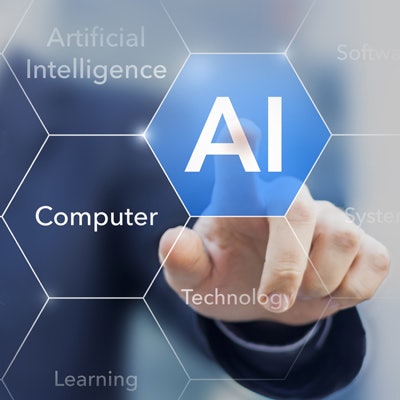
Most radiology residents in the U.S. want education on artificial intelligence (AI) technology to be included in the residency curriculum and they want the training to be hands-on, according to research published January 27 in Academic Radiology.
A multi-institutional team led by Ninad Salastekar of Emory University School of Medicine in Atlanta surveyed radiology residents at 21 residency programs. The group found that the majority of respondents favored inclusion of AI/machine-learning education in the curriculum.
"Level/depth of such education should be tailored to allow residents/radiologists to troubleshoot AI applications in practice," the authors wrote.
In an effort to evaluate radiology residents' perspectives on the inclusion of AI/machine-learning content, the researchers sent an anonymous survey to 759 residents at 21 radiology resident programs in the U.S. Responses were received from 209 (27%) of the residents. All four years of training were represented among the respondents, but less than 20% had received formal education or research experience in AI/machine learning.
Overall, 83% either strongly agreed or agreed that AI/machine learning education should be part of the radiology residency curriculum. And 82% agreed or strongly agreed that such education should equip them with the knowledge to troubleshoot an AI tool in practice and to determine if it's working as intended, according to the researchers.
A lecture series was the most common resource among those institutions offering AI/machine learning education:
- Lecture series (43%)
- National informatics courses (28%)
- In-house/institutional courses (26%)
Among the different educational approaches, hands-on AI/machine-learning laboratory and a lecture series were reported to be the most beneficial or effective method, by 67% and 61%, respectively.
"Although residents largely favored hands-on training in AI/ML, very few respondents actually reported any prior or current hands-on training, and as such, our results are not necessarily a validation of this training method," the authors wrote. "However, the respondents need not have had prior 'hands-on' experience in the field of AI/ML to understand the difference between (and hence express the preference for) lectures and labs (common in undergraduate and graduate education in the U.S.)."
In other findings, 76% of the respondents preferred a continuous course spanning the radiology residency, while 32% preferred the AI/machine learning education provided as a minifellowship during the fourth year of residency. However, 21% would have liked to have that education as a course during their first postgraduate year (PGY1).
The researchers noted that recent efforts to create educational content for radiology trainees on AI have yielded positive results; the majority of participants have reported increased knowledge and high satisfaction scores with those initiatives.
"There is room to improve awareness about available online resources for self-directed AI/[machine-learning] education through better promotion/marketing," they wrote. "Further studies should continue to track evolving learner needs as we continue to navigate the rapidly changing landscape of AI in radiology."




















